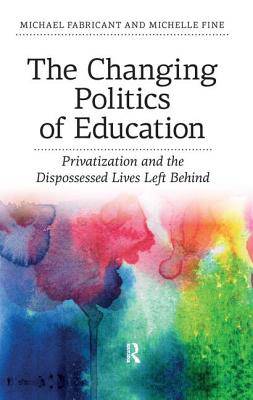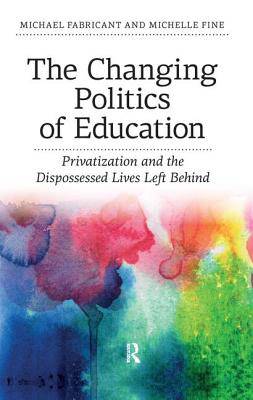
- Afhalen na 1 uur in een winkel met voorraad
- Gratis thuislevering in België vanaf € 30
- Ruim aanbod met 7 miljoen producten
- Afhalen na 1 uur in een winkel met voorraad
- Gratis thuislevering in België vanaf € 30
- Ruim aanbod met 7 miljoen producten
Zoeken
Changing Politics of Education
Privitization and the Dispossessed Lives Left Behind
Michael Fabricant, Michelle Fine
Hardcover | Engels
€ 236,95
+ 473 punten
Omschrijving
The authors persuasively argue that the present cascade of reforms to public education is a consequence of a larger intention to shrink government. The startling result is that more of public education's assets and resources are moving to the private sector and to the prison industrial complex. Drawing on various forms of evidence-structural, economic, narrative, and youth-generated participatory research-the authors reveal new structures and circuits of dispossession and privilege that amount to a clear failure of present policy. Policymaking is at war with the interests of the vast majority of citizens, and especially with urban youth of color. In the final chapter the authors explore democratic principles and offer examples essential to mobilizing, in solidarity with educators, youth, communities, labor, and allied social movements, the kind of power necessary to contest the present direction of public education reform.
Specificaties
Betrokkenen
- Auteur(s):
- Uitgeverij:
Inhoud
- Aantal bladzijden:
- 205
- Taal:
- Engels
Eigenschappen
- Productcode (EAN):
- 9781612052700
- Verschijningsdatum:
- 30/05/2013
- Uitvoering:
- Hardcover
- Formaat:
- Genaaid
- Afmetingen:
- 155 mm x 231 mm
- Gewicht:
- 430 g

Alleen bij Standaard Boekhandel
+ 473 punten op je klantenkaart van Standaard Boekhandel
Beoordelingen
We publiceren alleen reviews die voldoen aan de voorwaarden voor reviews. Bekijk onze voorwaarden voor reviews.











